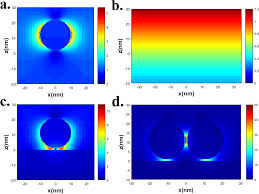The Mac
@TheMac
04 July, 10:34
Notice: Undefined index: tg1tga_access in /home/admin/www/anonup.com/themes/default/apps/timeline/post.phtml on line 396
Linda Moore
@mykismet06350
05 July, 11:44
In response The Mac to his Publication
88 ( )/with out ceasing/I shall abide
Notice: Undefined index: tg1tga_access in /home/admin/www/anonup.com/themes/default/apps/timeline/post.phtml on line 396
The Mac
@TheMac
05 July, 04:02
In response Linda Moore to her Publication
Notice: Undefined index: tg1tga_access in /home/admin/www/anonup.com/themes/default/apps/timeline/post.phtml on line 396
The Mac
@TheMac
05 July, 04:09
In response The Mac to his Publication
bead
/biːd/
verb
gerund or present participle: beading
1.
decorate or cover with beads.
"I beaded the jacket by hand"
string (beads) together.
"seashells beaded into belts"
2.
cover (a surface) with drops of moisture.
"his face was beaded with perspiration"
Origin
Old English gebed ‘prayer’, of Germanic origin; related to Dutch bede and German Gebet, also to bid2. Current senses derive from the use of a rosary, each bead representing a prayer.
/biːd/
verb
gerund or present participle: beading
1.
decorate or cover with beads.
"I beaded the jacket by hand"
string (beads) together.
"seashells beaded into belts"
2.
cover (a surface) with drops of moisture.
"his face was beaded with perspiration"
Origin
Old English gebed ‘prayer’, of Germanic origin; related to Dutch bede and German Gebet, also to bid2. Current senses derive from the use of a rosary, each bead representing a prayer.
Notice: Undefined index: tg1tga_access in /home/admin/www/anonup.com/themes/default/apps/timeline/post.phtml on line 396
The Mac
@TheMac
05 July, 04:15
In response The Mac to his Publication
"I am better served by obedience to My laws and conformity with My plans than by ritual and offerings.
To listen to the words of the Sacred Writings while striving to understand them is better in My sight than offerings of flesh and treasure which benefit the priests more than they do
Me.
Among the things, which I abhor, few are more detestable than the hypocritical offerings of the evildoer.
The offerings and worship of a hypocrite are an abomination to Me.
Evil enters the realm beyond Earth as a foul smell, and the worse one of all is the smell of hypocrisy.
Those who pander to hypocrites or do not actively oppose them are also creatures of
evil."
To listen to the words of the Sacred Writings while striving to understand them is better in My sight than offerings of flesh and treasure which benefit the priests more than they do
Me.
Among the things, which I abhor, few are more detestable than the hypocritical offerings of the evildoer.
The offerings and worship of a hypocrite are an abomination to Me.
Evil enters the realm beyond Earth as a foul smell, and the worse one of all is the smell of hypocrisy.
Those who pander to hypocrites or do not actively oppose them are also creatures of
evil."
Notice: Undefined index: tg1tga_access in /home/admin/www/anonup.com/themes/default/apps/timeline/post.phtml on line 396
The Mac
@TheMac
05 July, 04:18
In response The Mac to his Publication
"I know too well the deceit, to which men are prone.
The adulterer and fornicator preach chastity for others, while the liar declares the virtues of Truth.
The thief preaches honesty and the lewd-minded professes modesty.
Men say one thing and mean another, while all too often the half or slanted truth replaces the real thing.
Men may deceive themselves and other
men, but I am not deceived.
Now I say, let men first cleanse their own souls and eradicate hypocrisy before presuming to approach Me.
Men may well cry out, "Why does God remain mute; why has He deserted Me?" Do they think their deeds are hidden or that I cannot read the secrets of their hearts?"
The adulterer and fornicator preach chastity for others, while the liar declares the virtues of Truth.
The thief preaches honesty and the lewd-minded professes modesty.
Men say one thing and mean another, while all too often the half or slanted truth replaces the real thing.
Men may deceive themselves and other
men, but I am not deceived.
Now I say, let men first cleanse their own souls and eradicate hypocrisy before presuming to approach Me.
Men may well cry out, "Why does God remain mute; why has He deserted Me?" Do they think their deeds are hidden or that I cannot read the secrets of their hearts?"
Notice: Undefined index: tg1tga_access in /home/admin/www/anonup.com/themes/default/apps/timeline/post.phtml on line 396
The Mac
@TheMac
05 July, 04:20
In response The Mac to his Publication
"Worship by men of iniquity is mere mockery.
How rare the sincere and genuine heart!
Were men indeed deserted by their God, they would have none to blame but themselves.
Do men think their lack of kindness and consideration for others, their insincerity and inconsistency are truly hidden from Me?
I am the All Knowing One.
I see too little love of goodness in the hearts of men and too much fear for the consequences of their deeds."
How rare the sincere and genuine heart!
Were men indeed deserted by their God, they would have none to blame but themselves.
Do men think their lack of kindness and consideration for others, their insincerity and inconsistency are truly hidden from Me?
I am the All Knowing One.
I see too little love of goodness in the hearts of men and too much fear for the consequences of their deeds."
Notice: Undefined index: tg1tga_access in /home/admin/www/anonup.com/themes/default/apps/timeline/post.phtml on line 396
The Mac
@TheMac
05 July, 04:22
In response The Mac to his Publication
I see too little love of goodness in the hearts of men and too much fear for the consequences of their deeds."
Notice: Undefined index: tg1tga_access in /home/admin/www/anonup.com/themes/default/apps/timeline/post.phtml on line 396
The Mac
@TheMac
05 July, 04:23
In response The Mac to his Publication
"‘Who'd believe it?’ ‘Who indeed?’"
Notice: Undefined index: tg1tga_access in /home/admin/www/anonup.com/themes/default/apps/timeline/post.phtml on line 396
Linda Moore
@mykismet06350
05 July, 08:22
In response The Mac to his Publication
"‘Who'd believe it?’-139/ Heresy: denotes
(a) "a choosing, choice" (from haireomai, "to choose"); then, "that which is chosen," and hence, "an opinion," especially a self-willed opinion, which is substituted for submission to the power of truth, and leads to division and the formation of sects,
Gen 3:11
And he said, Who told thee that thou wast naked? Hast thou eaten of the tree, whereof I commanded thee that thou shouldest not eat?
(a) "a choosing, choice" (from haireomai, "to choose"); then, "that which is chosen," and hence, "an opinion," especially a self-willed opinion, which is substituted for submission to the power of truth, and leads to division and the formation of sects,
Gen 3:11
And he said, Who told thee that thou wast naked? Hast thou eaten of the tree, whereof I commanded thee that thou shouldest not eat?
Notice: Undefined index: tg1tga_access in /home/admin/www/anonup.com/themes/default/apps/timeline/post.phtml on line 396
The Mac
@TheMac
05 July, 10:26
In response Linda Moore to her Publication
Plain unadorned facts, without concealment or embellishment.
For example, What I've told you is the naked truth.
For example, What I've told you is the naked truth.
Notice: Undefined index: tg1tga_access in /home/admin/www/anonup.com/themes/default/apps/timeline/post.phtml on line 396
The Mac
@TheMac
05 July, 10:28
In response The Mac to his Publication
keyed
simple past tense and past participle of key
simple past tense and past participle of key
Notice: Undefined index: tg1tga_access in /home/admin/www/anonup.com/themes/default/apps/timeline/post.phtml on line 396
The Mac
@TheMac
05 July, 10:29
In response The Mac to his Publication
keyed (adj.)
1796, "having keys," from key (n.) in the musical sense. Also "to set the tone (of a musical instrument) to a particular key; hence figurative keyed up "excited, high-strung" (1889).
1796, "having keys," from key (n.) in the musical sense. Also "to set the tone (of a musical instrument) to a particular key; hence figurative keyed up "excited, high-strung" (1889).
Notice: Undefined index: tg1tga_access in /home/admin/www/anonup.com/themes/default/apps/timeline/post.phtml on line 396
The Mac
@TheMac
05 July, 10:32
In response The Mac to his Publication
beat tone[′bēt ‚tōn]
(engineering acoustics)
Musical tone due to beats, produced by the heterodyning of two high-frequency wave trains.
(engineering acoustics)
Musical tone due to beats, produced by the heterodyning of two high-frequency wave trains.
Notice: Undefined index: tg1tga_access in /home/admin/www/anonup.com/themes/default/apps/timeline/post.phtml on line 396
frequency (n.)
1550s, "state of being crowded" (now obsolete); 1640s, "fact of occurring often;" from Latin frequentia "an assembling in great numbers, a crowding; crowd, multitude, throng," from frequentem (see frequent). Sense in physics, "rate of recurrence," especially of a vibration, is from 1831. In radio electronics, frequency modulation (1922, abbreviated F.M.) as a system of broadcasting is distinguished from amplitude modulation (or A.M.).
1550s, "state of being crowded" (now obsolete); 1640s, "fact of occurring often;" from Latin frequentia "an assembling in great numbers, a crowding; crowd, multitude, throng," from frequentem (see frequent). Sense in physics, "rate of recurrence," especially of a vibration, is from 1831. In radio electronics, frequency modulation (1922, abbreviated F.M.) as a system of broadcasting is distinguished from amplitude modulation (or A.M.).
10:41 PM - Jul 05, 2022
In response The Mac to his Publication
Only people mentioned by TheMac in this post can reply
Linda Moore
@mykismet06350
06 July, 03:15
In response The Mac to his Publication
Rooster (Alice in chains)
Alice/Alice is a form of the Old French name Alis (older Alais), short form of Adelais, which is derived from the Old High German Adalhaidis (see Adelaide), from the Proto-Germanic words *aþala-, meaning "noble" and *haidu-, meaning "appearance; kind" (compare German Adel "nobility", edel "noble", nominalizing suffix -heit "-hood"), hence "of noble character or rank, of nobility".[1] Alaïs is the Old French form of the name; Alys of Vexin was also known as Alaïs.[2]
Galatians 3:29
And if you are Christ's, then you are Abraham's offspring, heirs according to promise
heir (n.)
"one who inherits, or has right of inheritance in, the property of another," c. 1300, from Anglo-French heir, Old French oir "heir, successor; heritage, inheritance," from Latin heredem (nominative heres) "heir, heiress" (see heredity).
https://www.youtube.com/wa...
Alice/Alice is a form of the Old French name Alis (older Alais), short form of Adelais, which is derived from the Old High German Adalhaidis (see Adelaide), from the Proto-Germanic words *aþala-, meaning "noble" and *haidu-, meaning "appearance; kind" (compare German Adel "nobility", edel "noble", nominalizing suffix -heit "-hood"), hence "of noble character or rank, of nobility".[1] Alaïs is the Old French form of the name; Alys of Vexin was also known as Alaïs.[2]
Galatians 3:29
And if you are Christ's, then you are Abraham's offspring, heirs according to promise
heir (n.)
"one who inherits, or has right of inheritance in, the property of another," c. 1300, from Anglo-French heir, Old French oir "heir, successor; heritage, inheritance," from Latin heredem (nominative heres) "heir, heiress" (see heredity).
https://www.youtube.com/wa...
Notice: Undefined index: tg1tga_access in /home/admin/www/anonup.com/themes/default/apps/timeline/post.phtml on line 396
Linda Moore
@mykismet06350
06 July, 04:07
In response Linda Moore to her Publication
Letter opening (to whom it may con/cern attested by 1740.)
psalm (n.)
"sacred poem or song," especially one expressing praise and thanksgiving, Old English psealm (West Saxon sealm; Anglian salm), partly from Old French psaume, saume, and partly from Church Latin psalmus, from Greek psalmos "song sung to a harp," originally "performance on stringed instrument; a plucking of the harp" (compare psaltes "harper"), from psallein "play on a stringed instrument, pull, twitch" (see feel (v.)).
27:1/ G27 agapētós, ag-ap-ay-tos'; from G25; beloved:—(dearly, well) beloved, dear./G1 Alpha
A Psalm of David.
The Lord is my light and my salvation;
Whom shall I fear?
The Lord is the defense of my life;
Whom shall I dread?
psalm (n.)
"sacred poem or song," especially one expressing praise and thanksgiving, Old English psealm (West Saxon sealm; Anglian salm), partly from Old French psaume, saume, and partly from Church Latin psalmus, from Greek psalmos "song sung to a harp," originally "performance on stringed instrument; a plucking of the harp" (compare psaltes "harper"), from psallein "play on a stringed instrument, pull, twitch" (see feel (v.)).
27:1/ G27 agapētós, ag-ap-ay-tos'; from G25; beloved:—(dearly, well) beloved, dear./G1 Alpha
A Psalm of David.
The Lord is my light and my salvation;
Whom shall I fear?
The Lord is the defense of my life;
Whom shall I dread?
Notice: Undefined index: tg1tga_access in /home/admin/www/anonup.com/themes/default/apps/timeline/post.phtml on line 396
The Mac
@TheMac
05 July, 10:42
In response The Mac to his Publication
A normal mode of an oscillating system is a pattern of motion in which all parts of the system move sinusoidally with the same frequency and with a fixed phase relation. The free motion described by the normal modes takes place at fixed frequencies. These fixed frequencies of the normal modes of a system are known as its natural frequencies or resonant frequencies. A physical object, such as a building, bridge, or molecule, has a set of normal modes and their natural frequencies that depend on its structure, materials and boundary conditions. In music, normal modes of vibrating instruments (strings, air pipes, drums, etc.) are called "harmonics" or "overtones".
Notice: Undefined index: tg1tga_access in /home/admin/www/anonup.com/themes/default/apps/timeline/post.phtml on line 396
The Mac
@TheMac
05 July, 10:44
In response The Mac to his Publication
The most general motion of a system is a superposition of its normal modes. The modes are normal in the sense that they can move independently, that is to say that an excitation of one mode will never cause motion of a different mode. In mathematical terms, normal modes are orthogonal to each other.
Notice: Undefined index: tg1tga_access in /home/admin/www/anonup.com/themes/default/apps/timeline/post.phtml on line 396






